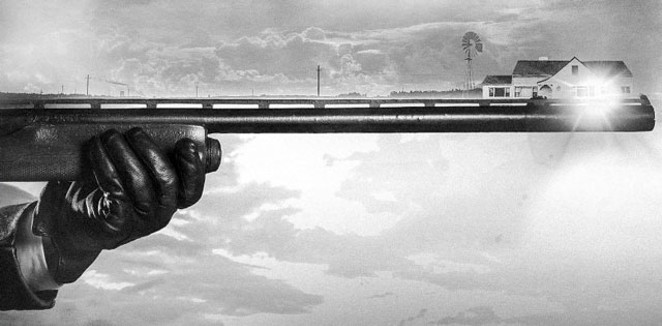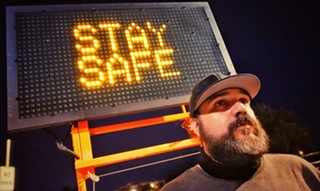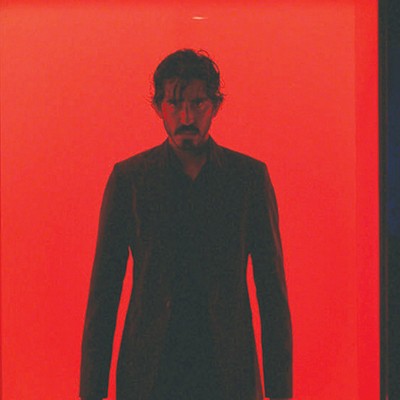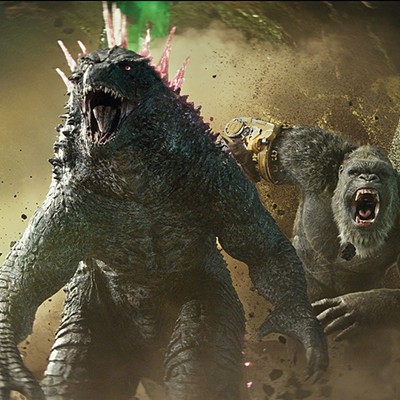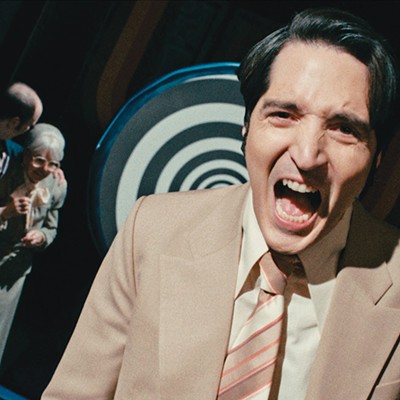"I didn't want to harm the man. I thought he was a very nice gentleman. Soft spoken. I thought so right up to the moment I cut his throat."
— Perry Edward Smith
It was a crime that shocked the country to its core when it happened. The United States wasn't a more innocent place during that winter of 1959, but it did a better job of keeping its darkest corners under wraps. Two ex-convicts, Richard Eugene "Dick" Hickock and Perry Edward Smith, had been recently paroled, after hearing jailhouse tales about a farmer named Herb Clutter and the large amounts of cash he kept on hand.
By the morning of Nov. 15, Clutter, his wife and two youngest children were dead. Hickock and Smith left the crime scene with only a radio, some binoculars and around $50 in cash. The crime and its aftermath are still of such stark importance to modern murder hounds like myself because of Truman Capote's legendary true crime novel, "In Cold Blood"—and the recent films about his life like "Infamous" and "Capote."
That won't be going away anytime soon, as Sundance TV has teamed up with Joe Berlinger, the filmmaker behind the incredibly important "Paradise Lost" documentaries, to take another look at the case in a new miniseries: "Cold Blooded: The Clutter Family Murders." Longtime Central Oregonian Paul Dewey, founder of Central Oregon LandWatch, was interviewed for the series for a very important reason.
"I became involved in the case because my father, Al Dewey, was the lead investigator in the case," says Dewey. "I was nine at the time but recall that Sunday when the murder was discovered, and I remember meeting Truman and Nelle [Harper Lee] in late 1959. I was also familiar with the case over the next six or so years until the murderers were hung, and after that was part of the continued family friendship with Truman and Nelle, and now, after all others in my family have died, I'm the 'archivist' of family documents on all that."
The choice to be involved in the documentary couldn't have been an easy one. "Though Nelle had advised my brother and me not to engage with writers and filmmakers, saying you couldn't trust them to tell things right, I decided it was time to tell the story since everyone else was gone," says Dewey. "I also checked up on Joe Berlinger and saw that he is a serious documentarian."
Capote eventually caught some flack for the dramatization inherent in the novel, but it doesn't take away any of the importance of the story being told. "Truman obviously oversold the book in terms of claiming that everything was true," says Dewey. "But some critics have tried to make a big deal of the discrepancies, and some have gone so far to claim that the KBI (Kansas Bureau of Investigation) erred in its investigation if they actually didn't do something that Truman said they did. Kind of bizarre, as if Truman was setting the standard to be followed in detective work.
"An example is that Truman says that an agent went to the Hickock house the same day an informer had come forward. That didn't happen like that—the house was visited several days later (the agent was a day's drive away). So the critics claimed that the KBI botched it, could have caught the killers and could have foreclosed any further murders committed by them. But the KBI did act right away based on the information, day after day tracking where they had gone, getting evidence that could support search warrants, etc. And the killers were obviously not around visiting their family after killing the family (they were in Mexico)—and there is no proof of other murders committed by them."
Berlinger is a master of research and always manages to find a different view of events. It will be interesting to see how "Cold Blooded" takes such well-known information and re-contextualizes it for a modern audience. Here's hoping Capote would be proud.
Cold Blooded: The Clutter Family Murders
Nov. 18 & 19, 9pm
Sundance TV

